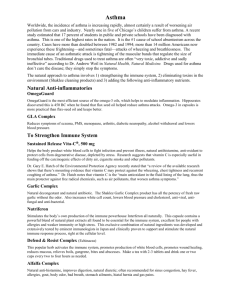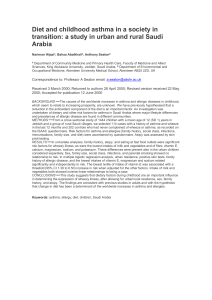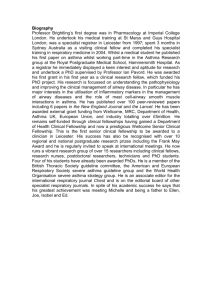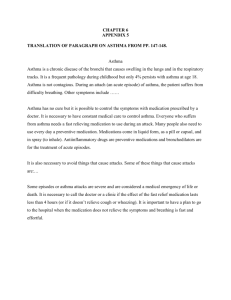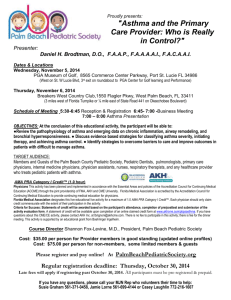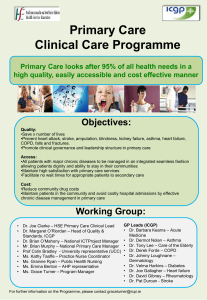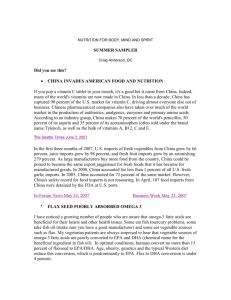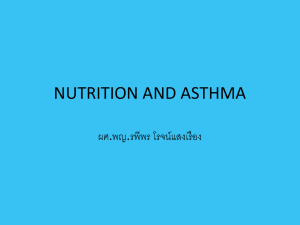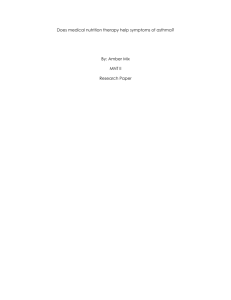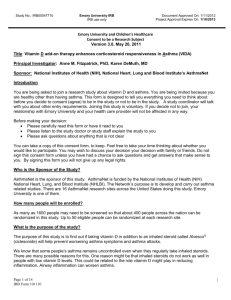D-asthma study medical student summer research opportunity 10.31
advertisement
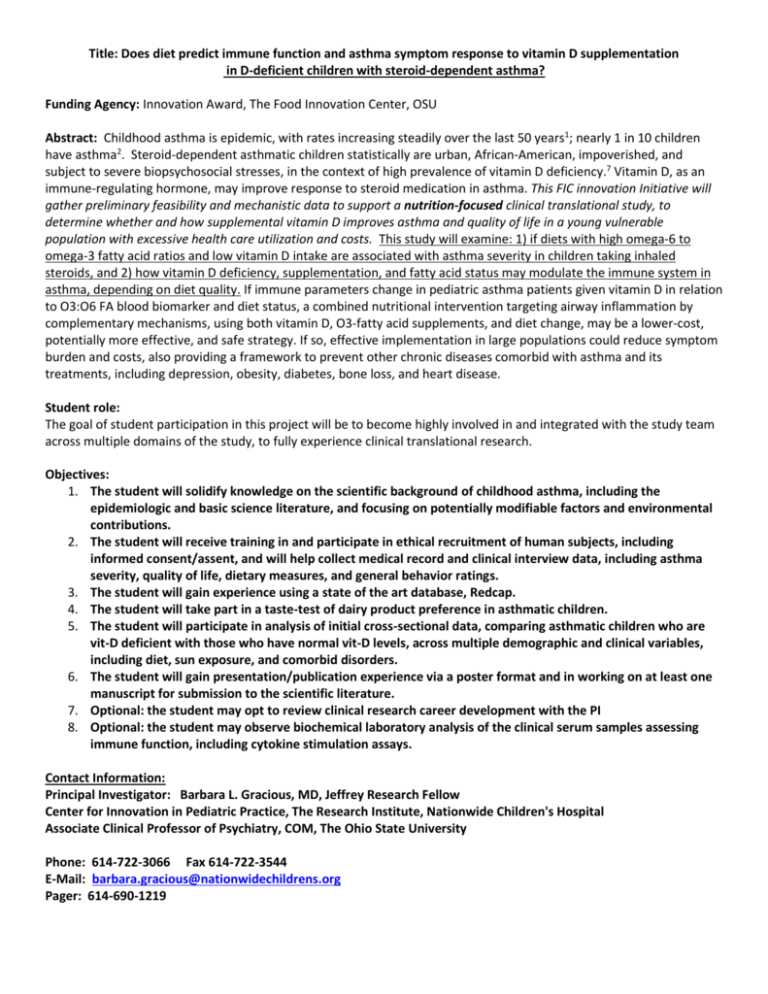
Title: Does diet predict immune function and asthma symptom response to vitamin D supplementation in D-deficient children with steroid-dependent asthma? Funding Agency: Innovation Award, The Food Innovation Center, OSU Abstract: Childhood asthma is epidemic, with rates increasing steadily over the last 50 years1; nearly 1 in 10 children have asthma2. Steroid-dependent asthmatic children statistically are urban, African-American, impoverished, and subject to severe biopsychosocial stresses, in the context of high prevalence of vitamin D deficiency.7 Vitamin D, as an immune-regulating hormone, may improve response to steroid medication in asthma. This FIC innovation Initiative will gather preliminary feasibility and mechanistic data to support a nutrition-focused clinical translational study, to determine whether and how supplemental vitamin D improves asthma and quality of life in a young vulnerable population with excessive health care utilization and costs. This study will examine: 1) if diets with high omega-6 to omega-3 fatty acid ratios and low vitamin D intake are associated with asthma severity in children taking inhaled steroids, and 2) how vitamin D deficiency, supplementation, and fatty acid status may modulate the immune system in asthma, depending on diet quality. If immune parameters change in pediatric asthma patients given vitamin D in relation to O3:O6 FA blood biomarker and diet status, a combined nutritional intervention targeting airway inflammation by complementary mechanisms, using both vitamin D, O3-fatty acid supplements, and diet change, may be a lower-cost, potentially more effective, and safe strategy. If so, effective implementation in large populations could reduce symptom burden and costs, also providing a framework to prevent other chronic diseases comorbid with asthma and its treatments, including depression, obesity, diabetes, bone loss, and heart disease. Student role: The goal of student participation in this project will be to become highly involved in and integrated with the study team across multiple domains of the study, to fully experience clinical translational research. Objectives: 1. The student will solidify knowledge on the scientific background of childhood asthma, including the epidemiologic and basic science literature, and focusing on potentially modifiable factors and environmental contributions. 2. The student will receive training in and participate in ethical recruitment of human subjects, including informed consent/assent, and will help collect medical record and clinical interview data, including asthma severity, quality of life, dietary measures, and general behavior ratings. 3. The student will gain experience using a state of the art database, Redcap. 4. The student will take part in a taste-test of dairy product preference in asthmatic children. 5. The student will participate in analysis of initial cross-sectional data, comparing asthmatic children who are vit-D deficient with those who have normal vit-D levels, across multiple demographic and clinical variables, including diet, sun exposure, and comorbid disorders. 6. The student will gain presentation/publication experience via a poster format and in working on at least one manuscript for submission to the scientific literature. 7. Optional: the student may opt to review clinical research career development with the PI 8. Optional: the student may observe biochemical laboratory analysis of the clinical serum samples assessing immune function, including cytokine stimulation assays. Contact Information: Principal Investigator: Barbara L. Gracious, MD, Jeffrey Research Fellow Center for Innovation in Pediatric Practice, The Research Institute, Nationwide Children's Hospital Associate Clinical Professor of Psychiatry, COM, The Ohio State University Phone: 614-722-3066 Fax 614-722-3544 E-Mail: barbara.gracious@nationwidechildrens.org Pager: 614-690-1219
